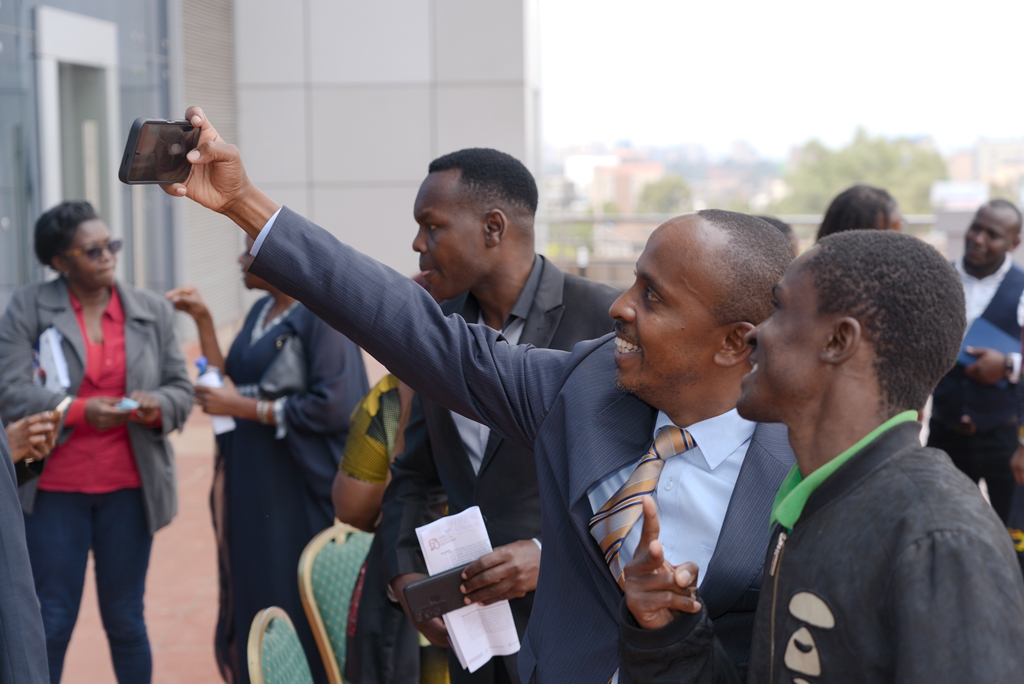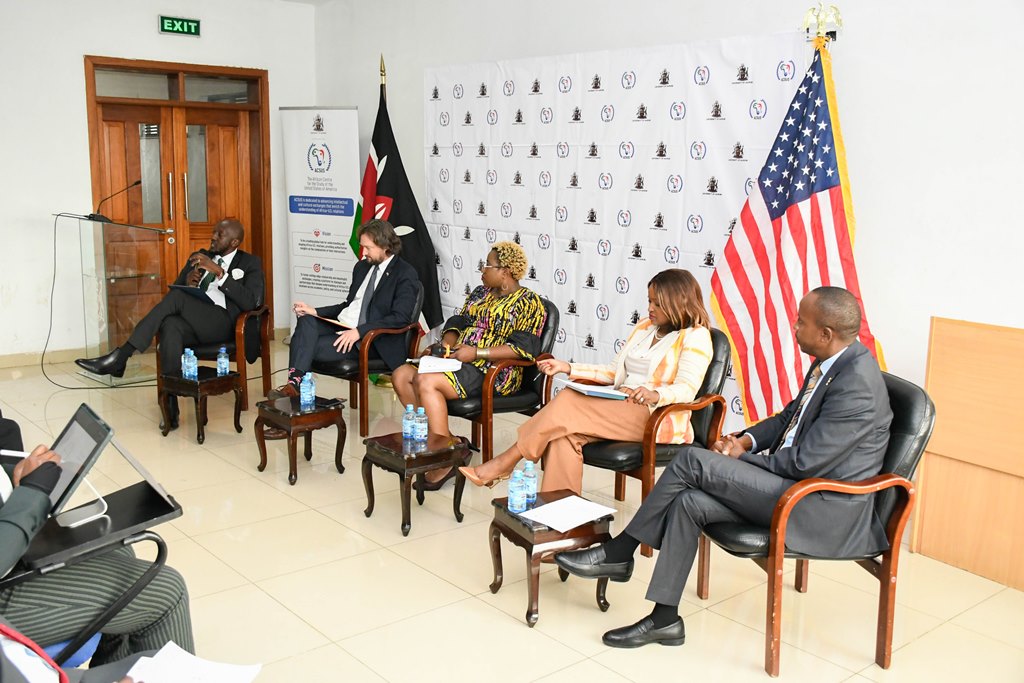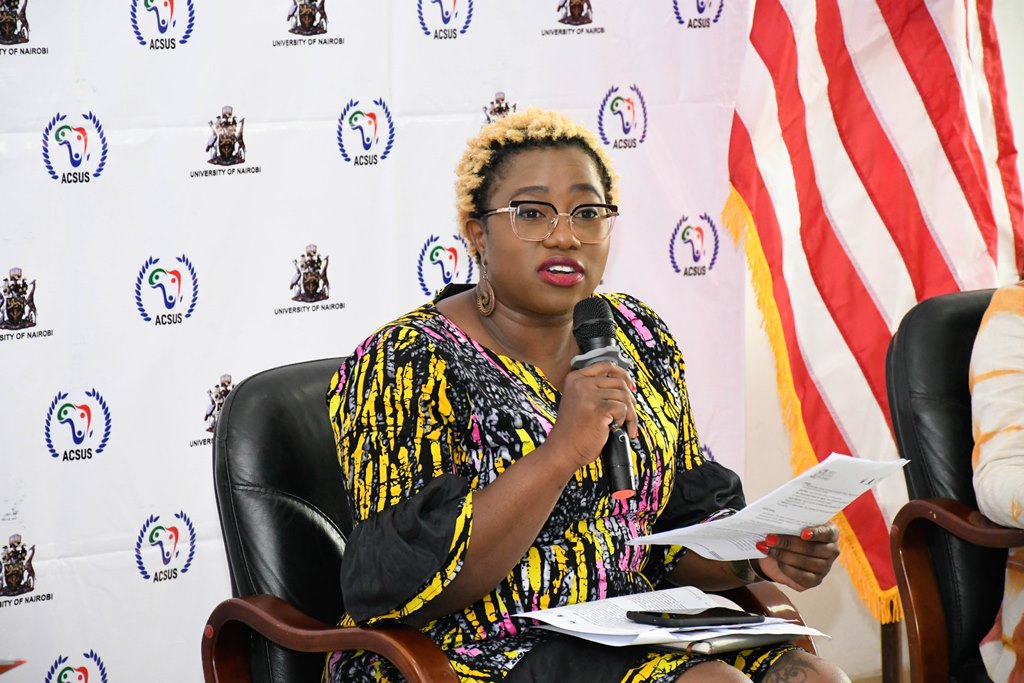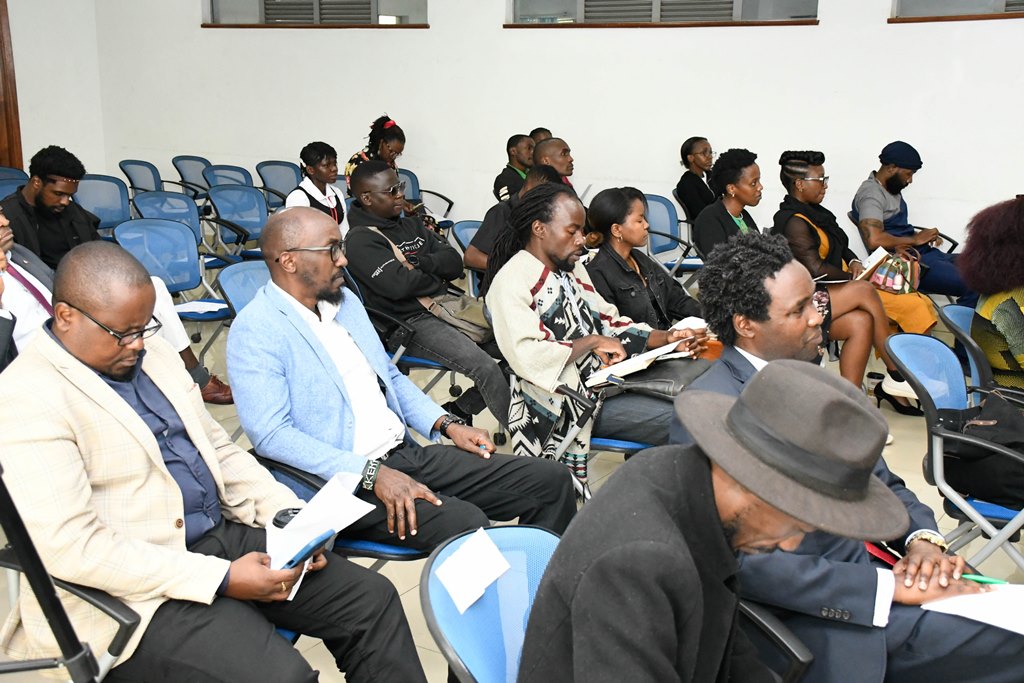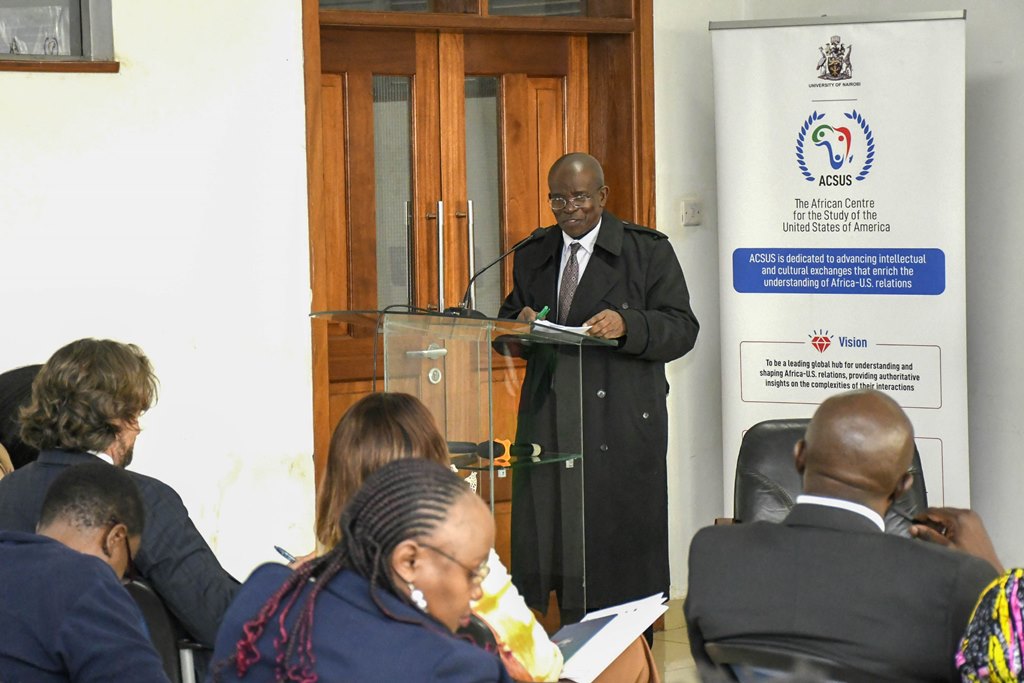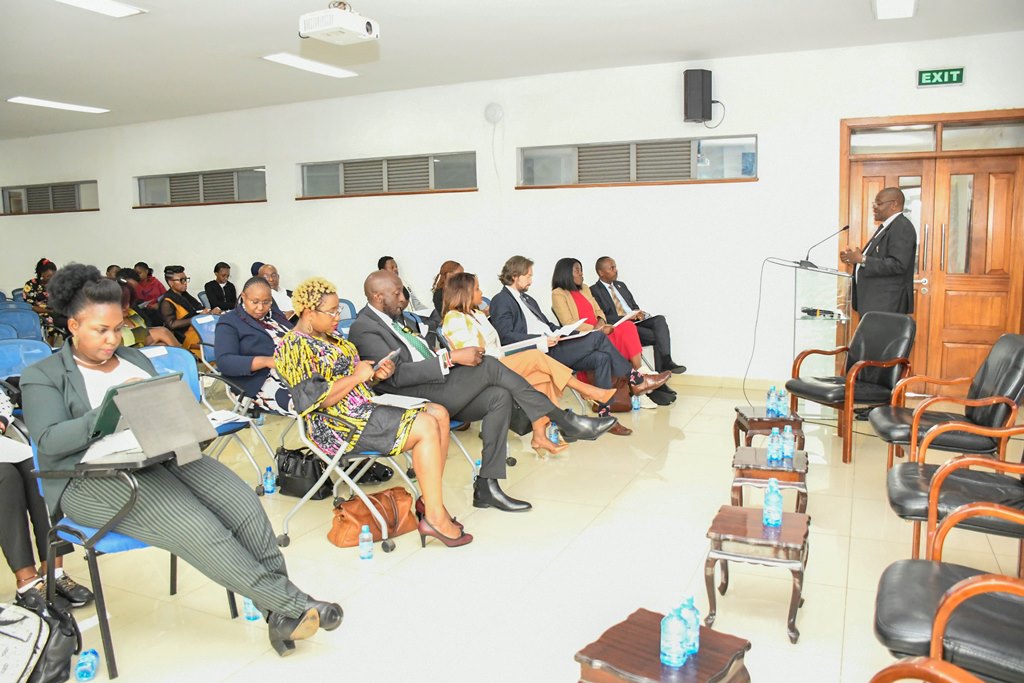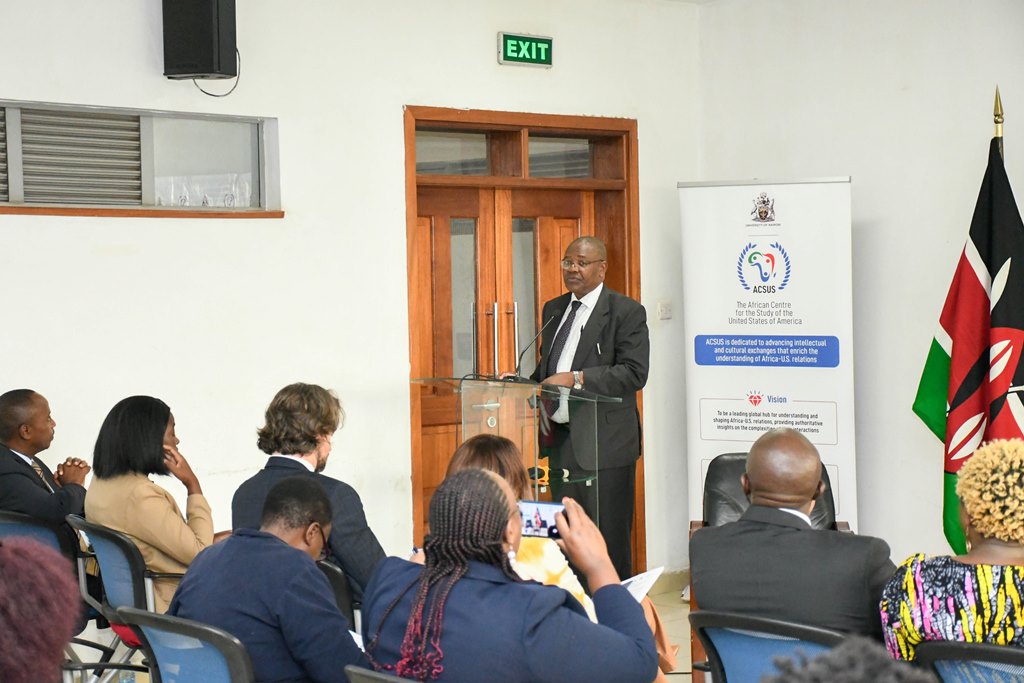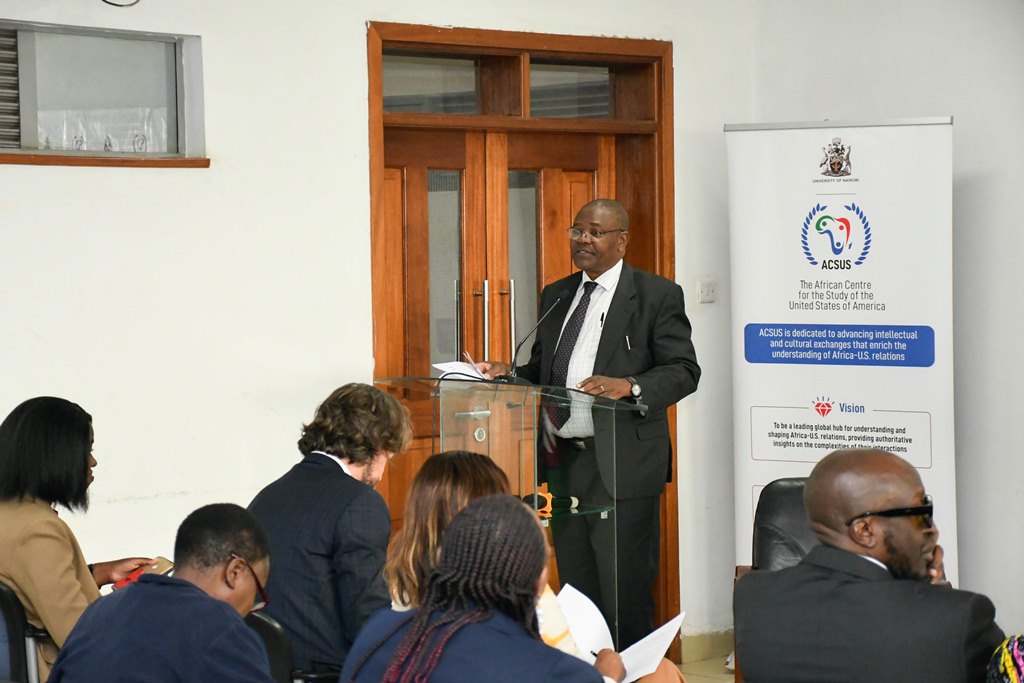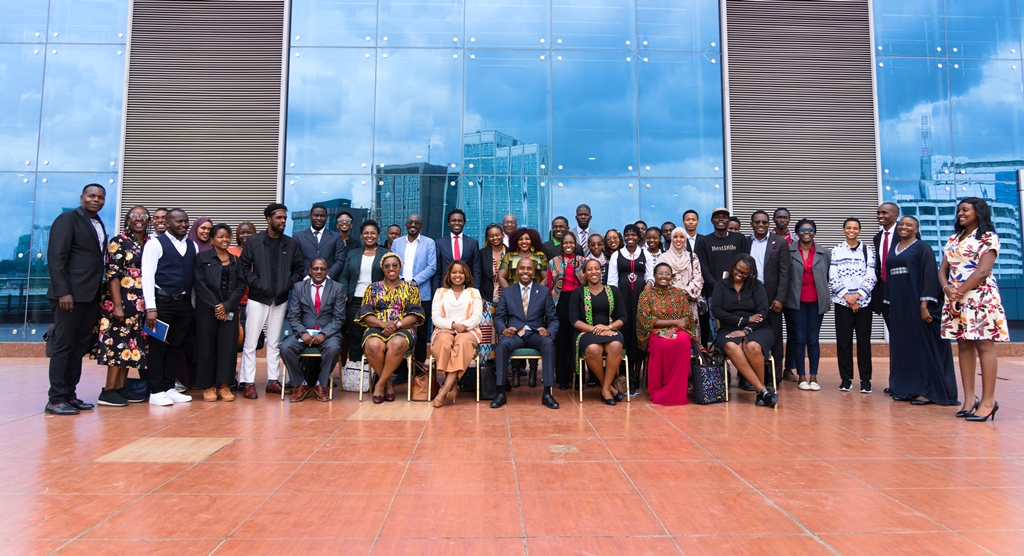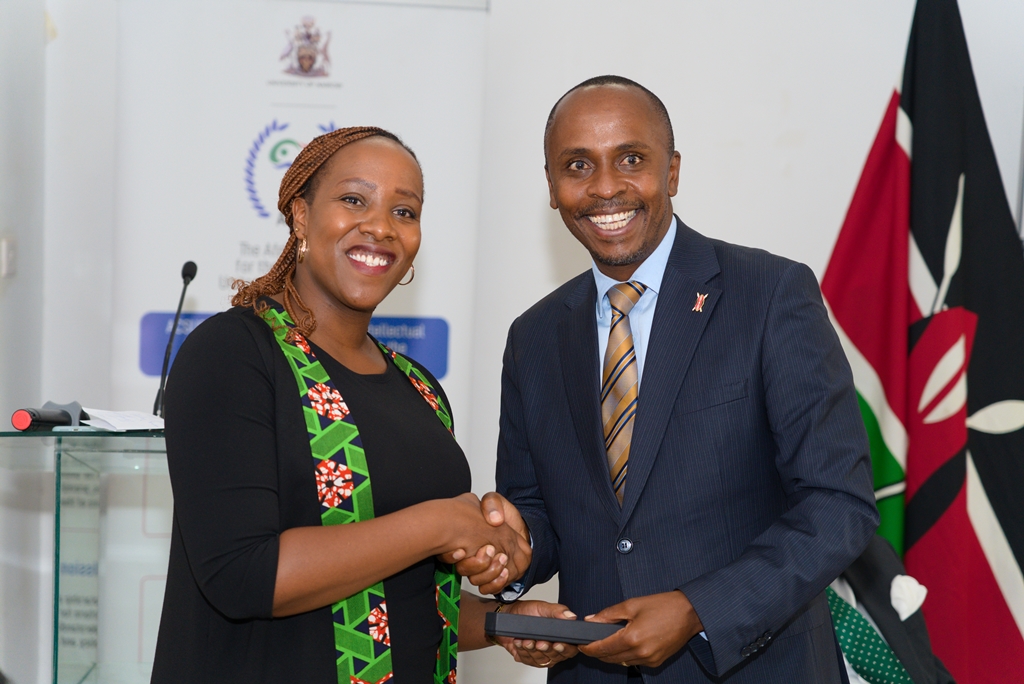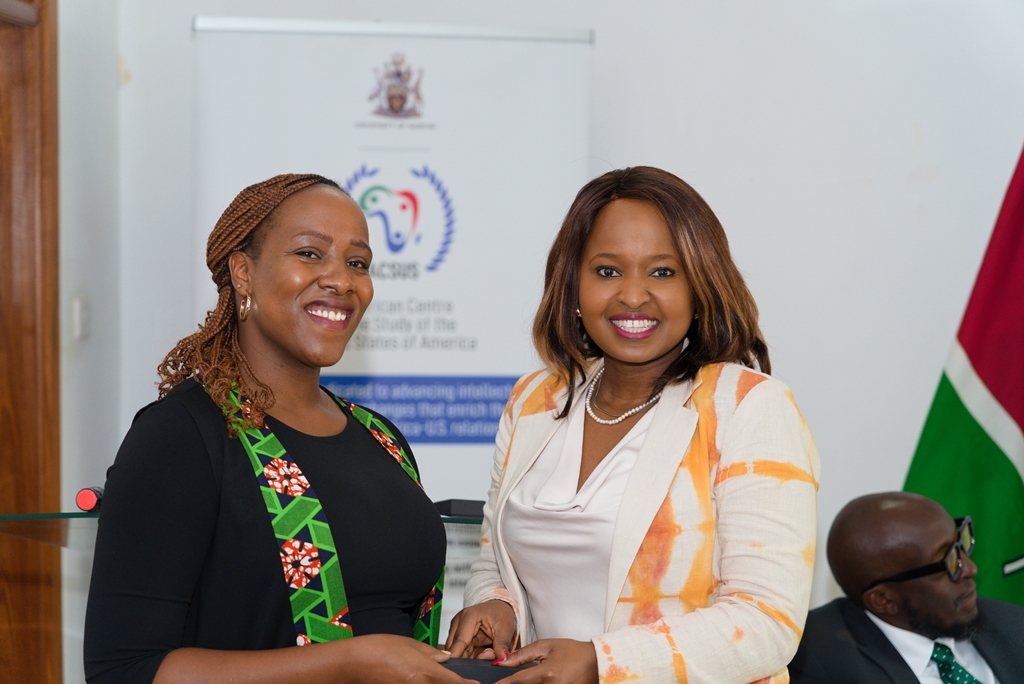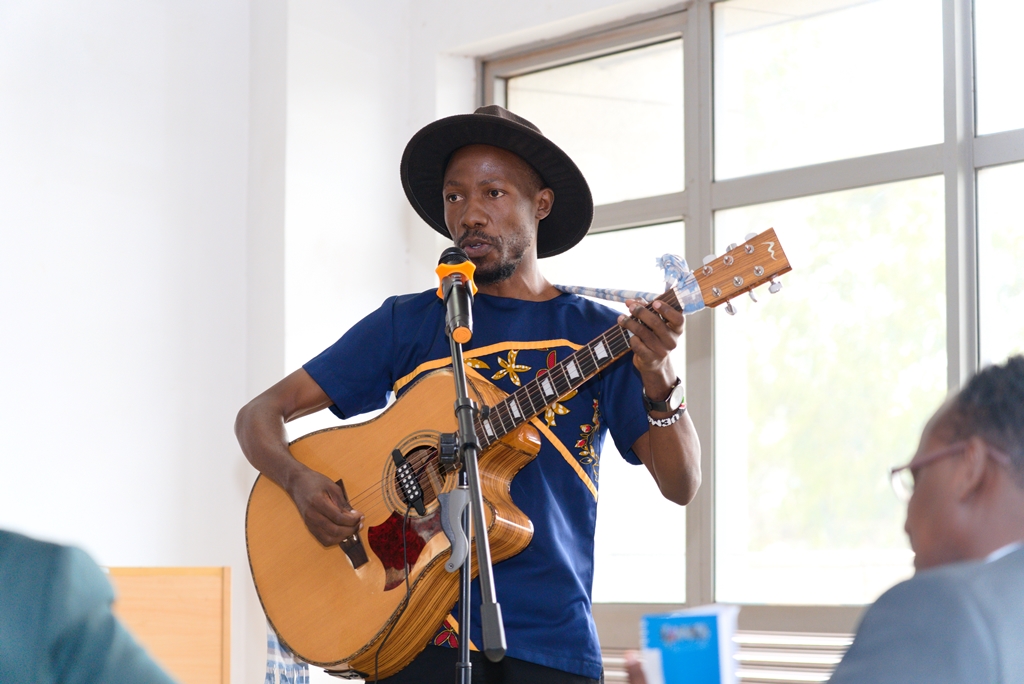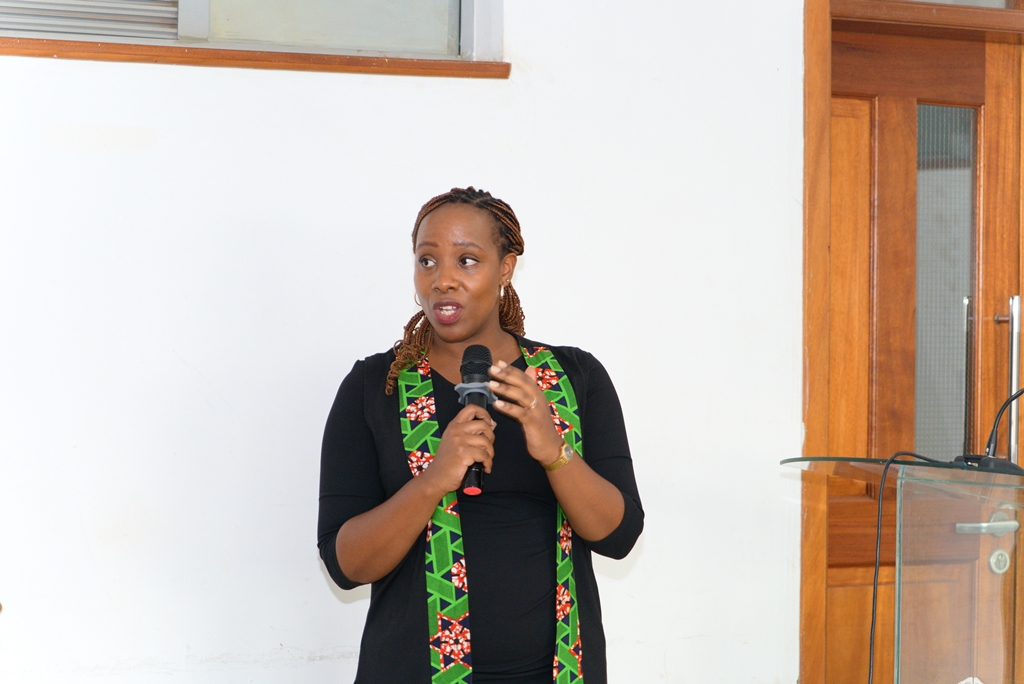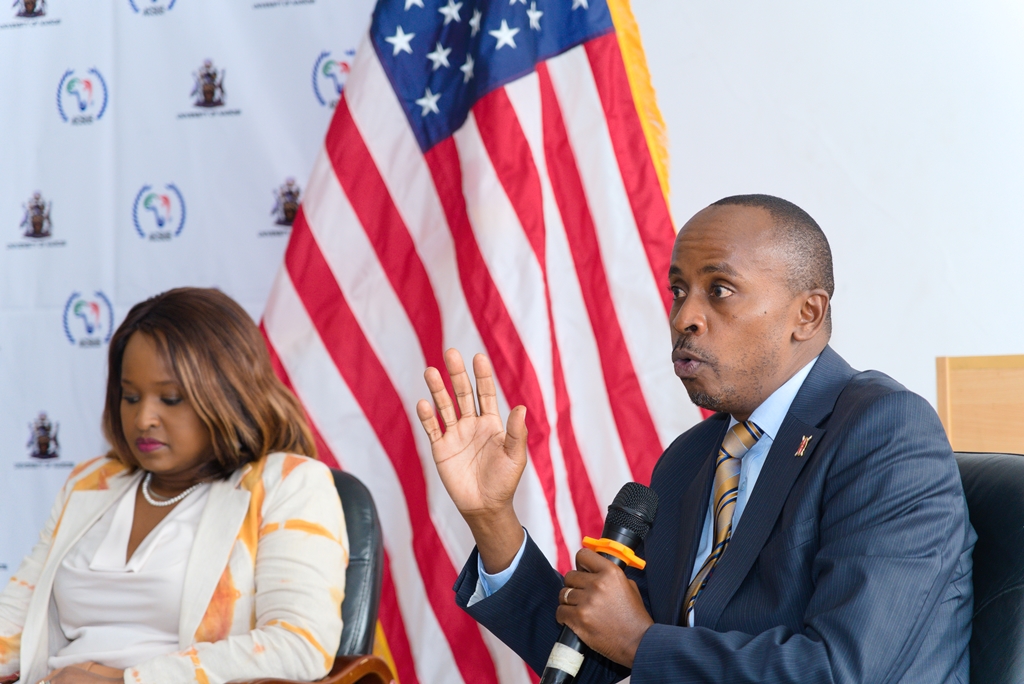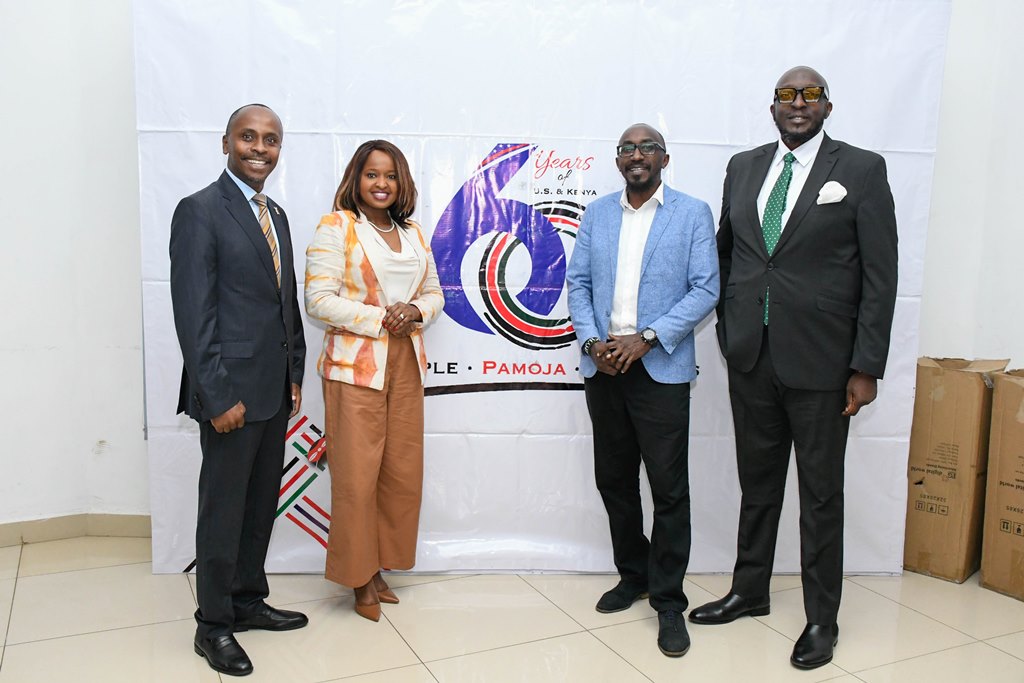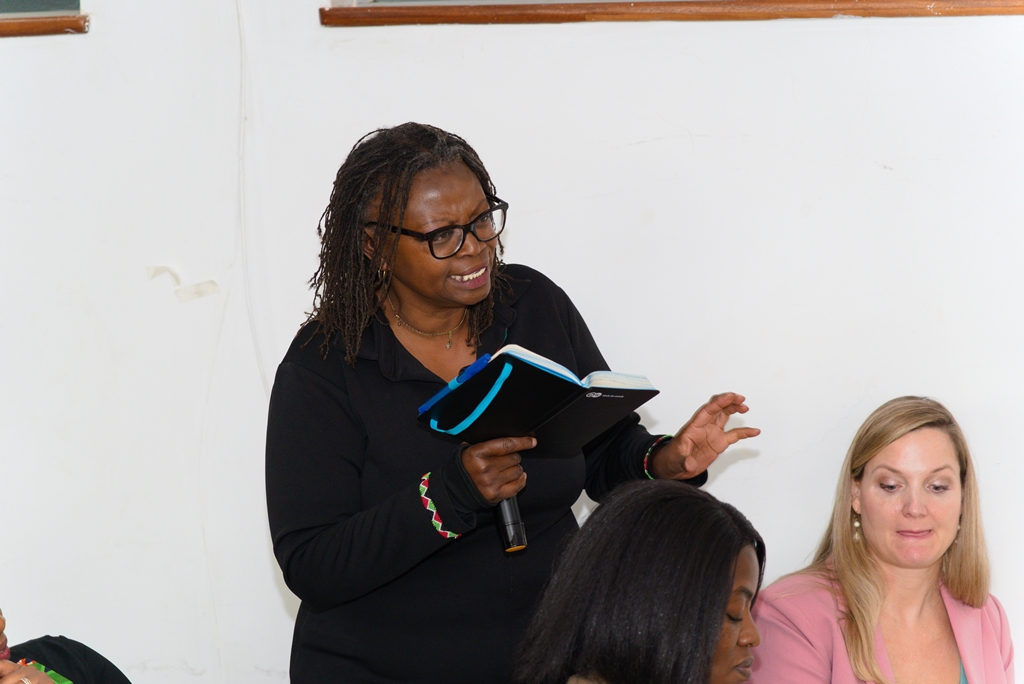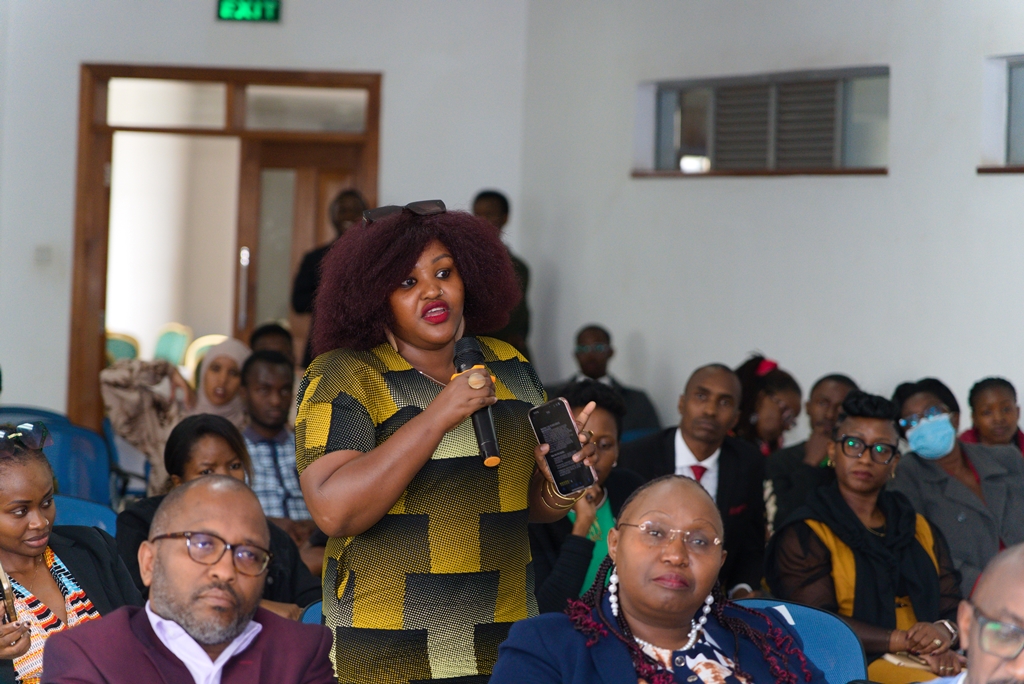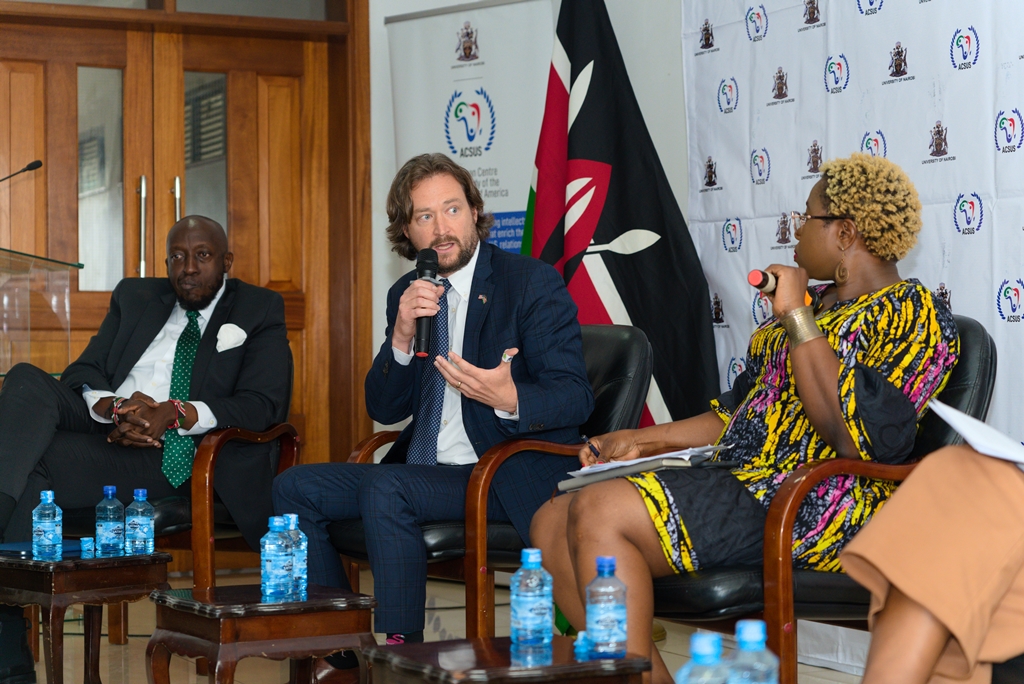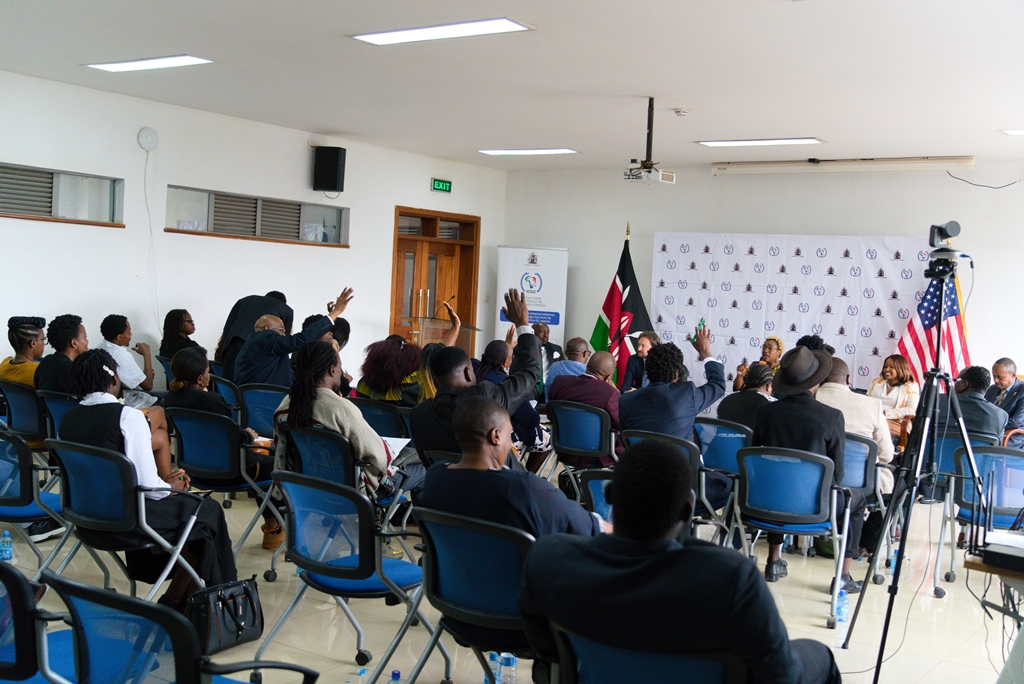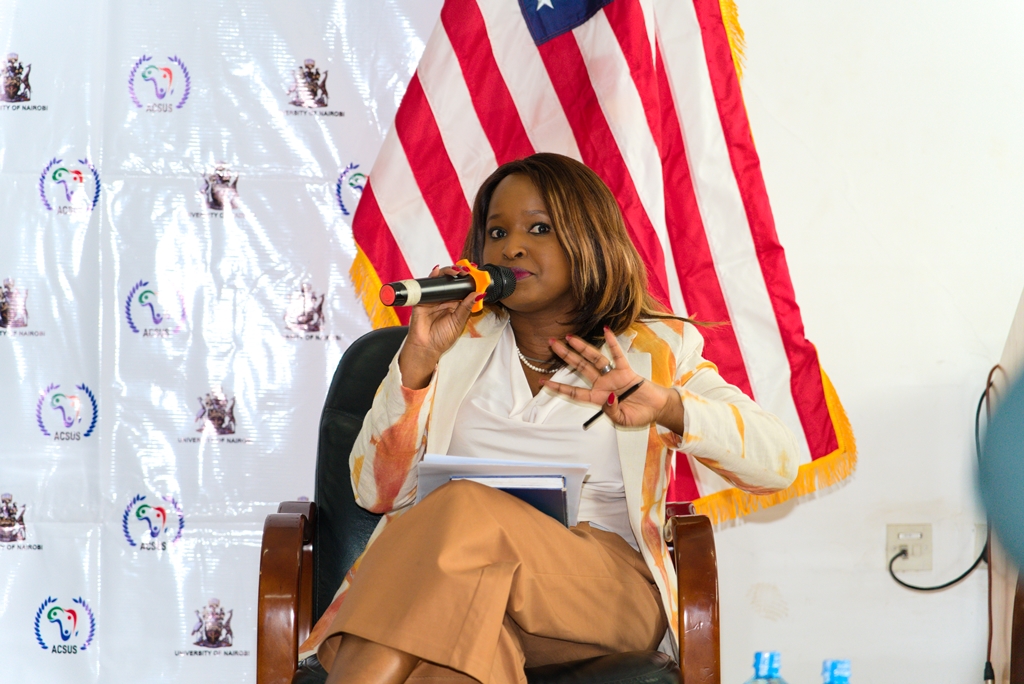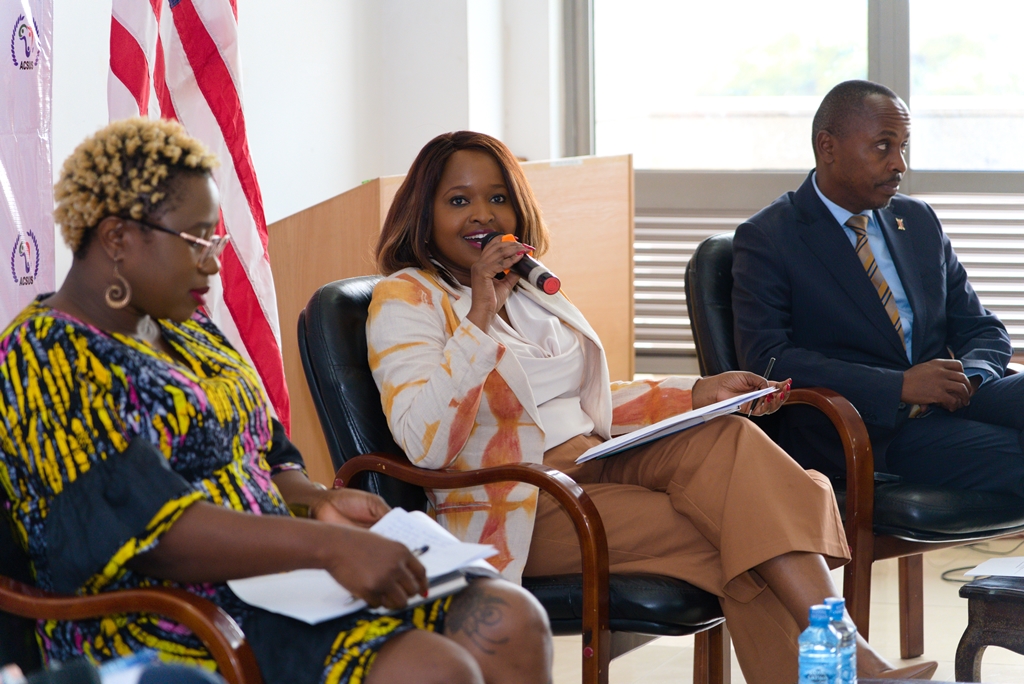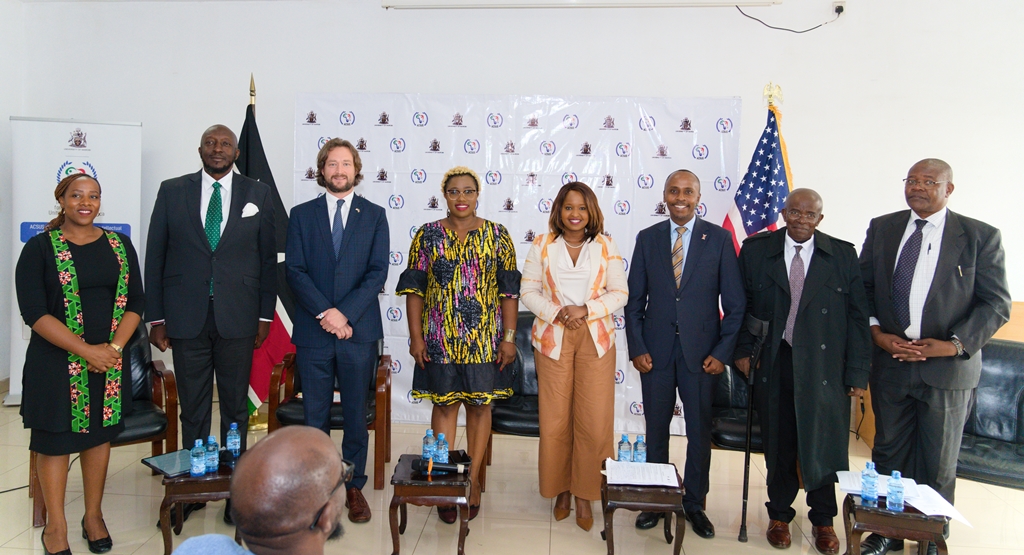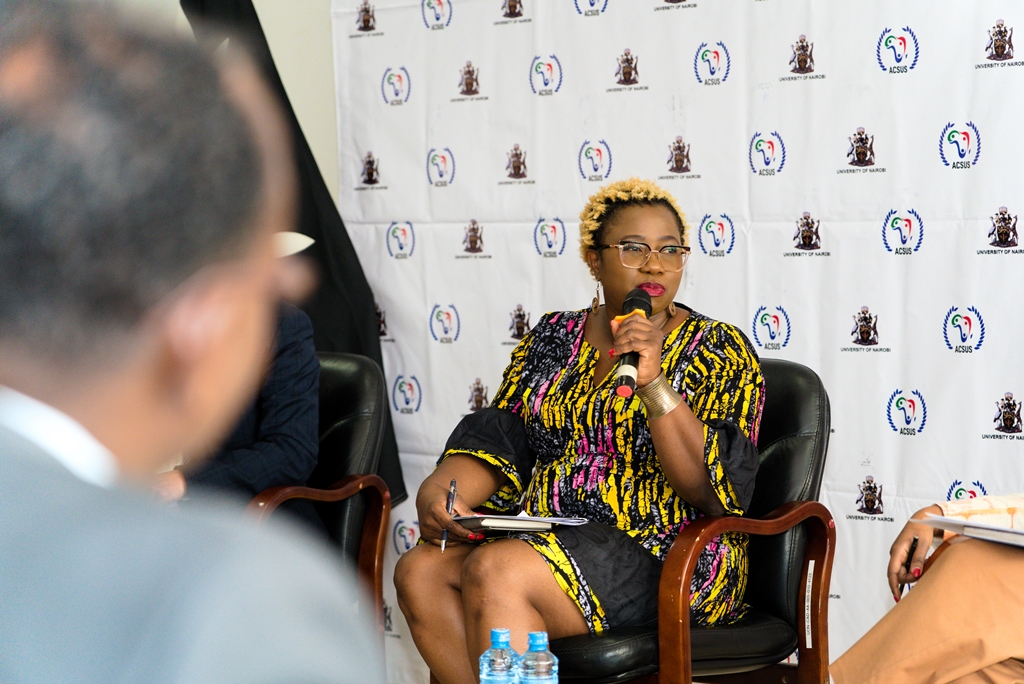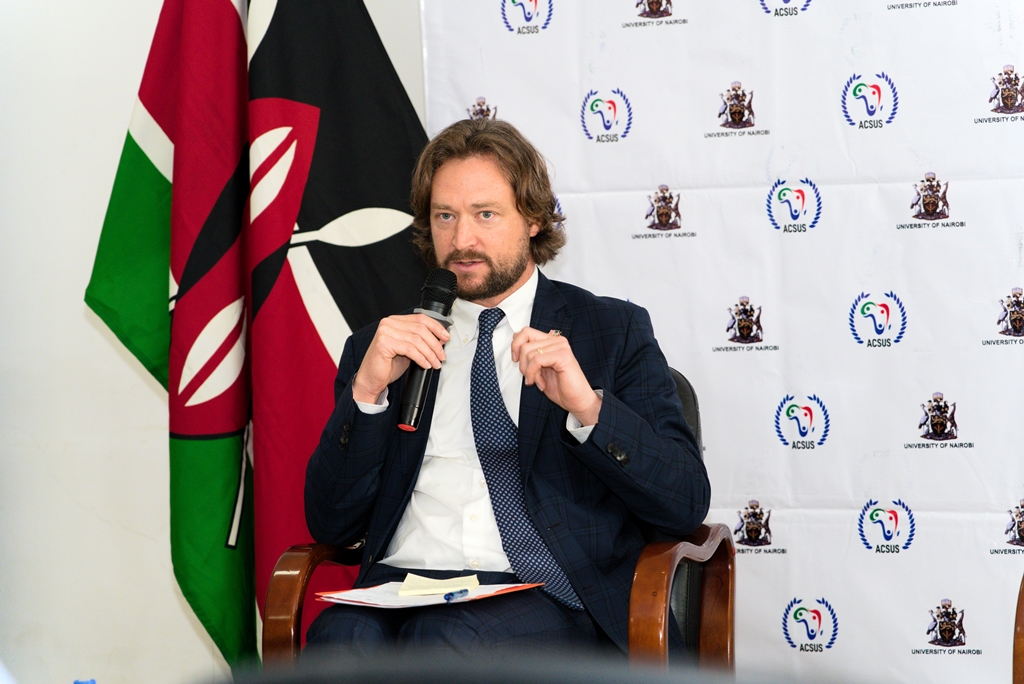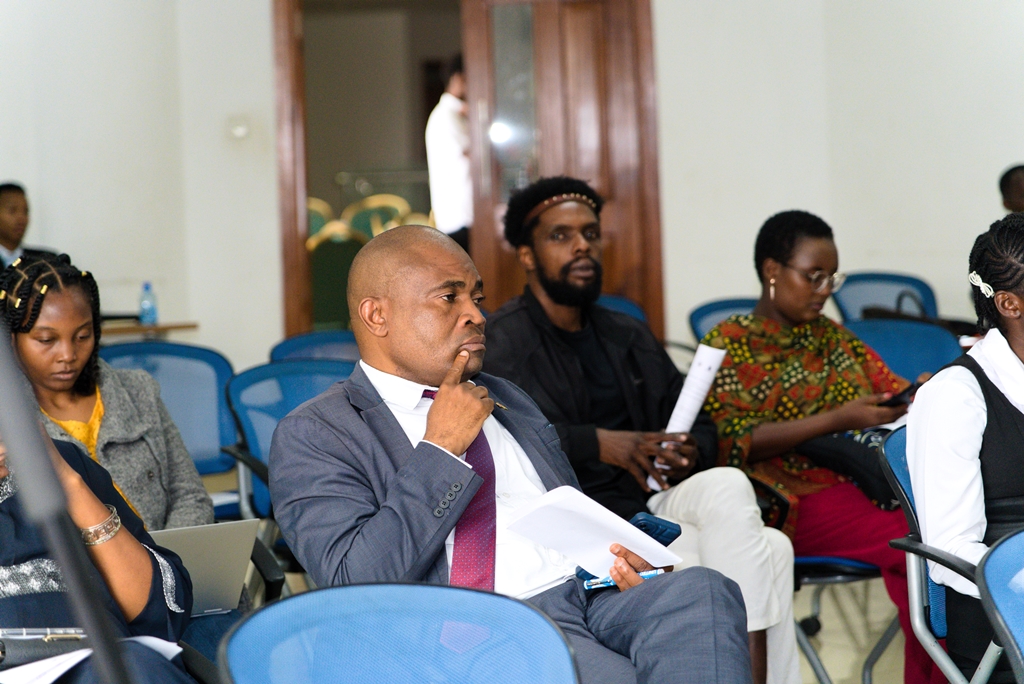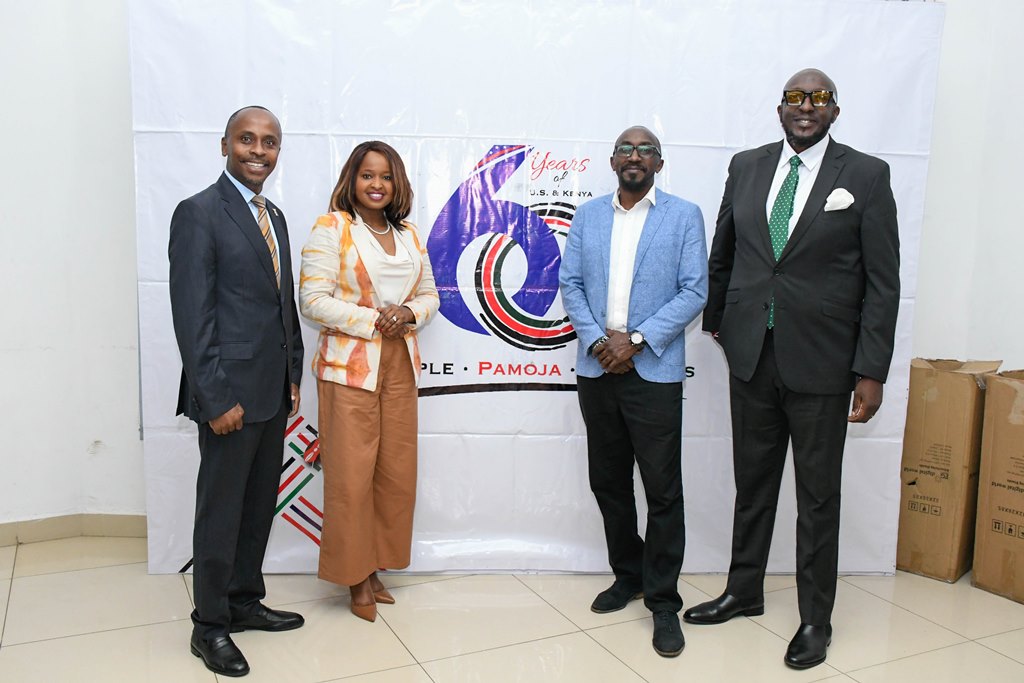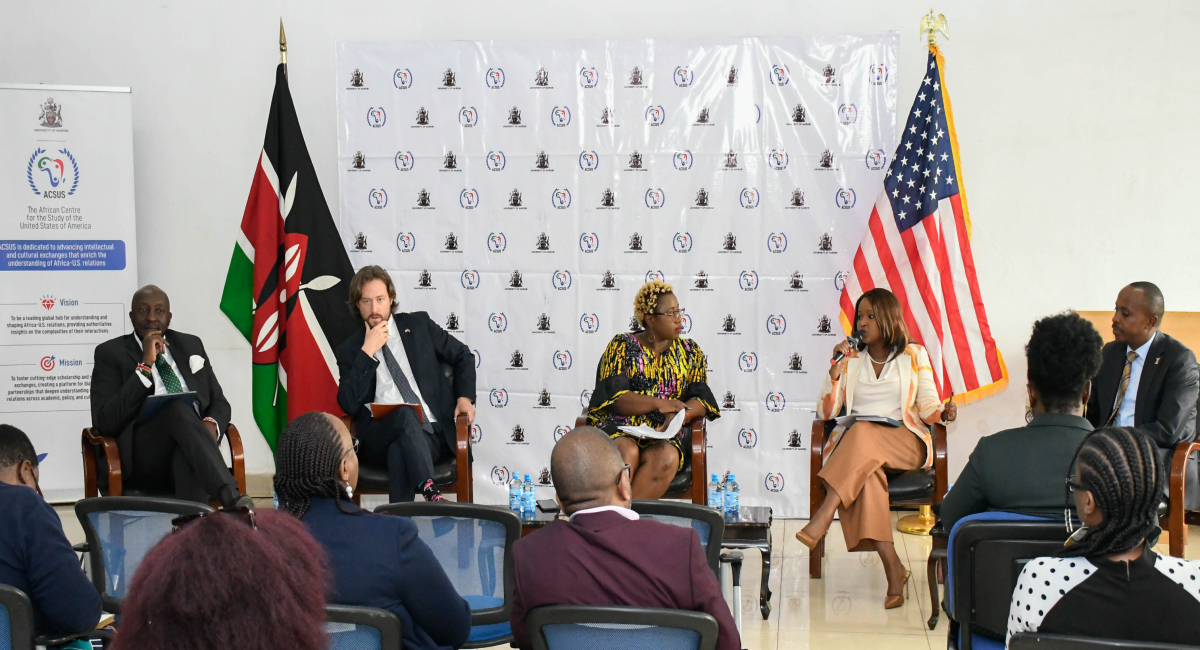“Creativity is not only culture; it is commerce, diplomacy, and development.” These words encapsulated the tone of the panel discussion held on Wednesday, April 30th, 2025, at the University of Nairobi Towers, Main Campus.
The event, themed “60 Years of US-Kenya Collaboration: Shaping the Future of the Creative Economy,” brought together key figures from government, civil society, the entertainment industry, and academia to commemorate six decades of strong bilateral relations through the lens of the creative sector.
This forum was part of the ongoing “Reflecting on 60 Years of U.S.–Kenya Diplomatic Engagement” program, spearheaded by the Africa Center for the Study of the U.S. (ACSUS), in partnership with the U.S. Embassy Public Diplomacy Section (PDS). The discussion aimed to highlight achievements, evaluate ongoing initiatives, and explore future opportunities in creative trade, cultural diplomacy, and sustainable development.
Bridging Creativity and Diplomacy
In her opening remarks, Dr. Zippora Okoth, Chair of the Performing Arts, Film and Media Studies Department at KCA University and the panel moderator, emphasized the transformative power of the creative industries in shaping public discourse and driving economic growth.
Hon. John Kiare, Member of Parliament for Dagoretti South and veteran in Kenya’s entertainment industry, lauded the evolution of the creative sector, crediting U.S.–Kenya cooperation for catalyzing talent development, infrastructure support, and international visibility for Kenyan creatives.
In his opening remarks, Mr. Drew Giblin, Acting Public Affairs Officer at the U.S. Embassy Nairobi, emphasized the role of the creative economy as a bridge between diplomacy and innovation. He noted that more than just soft power, the arts foster inclusive growth, youth engagement, and cross-border collaboration.
Amb. Thomas Kwaka Omolo, also known as Big Ted, highlighted his tenure as Kenya’s Consul General in Los Angeles, pointing to the cultural synergies between Hollywood and Kenya. He drew attention to Kenyan contributions in global productions like The Lion King (2019) and reaffirmed the need to position Kenyan creatives as global players.
Angela Ndambuki, Regional Director for Sub-Saharan Africa at the International Federation of the Phonographic Industry (IFPI), addressed the critical role of intellectual property rights and policy frameworks in supporting sustainable creative enterprises and protecting artist contributions.
Forward-Looking Collaboration
Throughout the panel, discussions focused on deepening U.S.–Kenya economic ties through inclusive investment in the creative economy. Panelists shared experiences, success stories, and recommendations on fostering innovation, strengthening legal protections, and scaling creative entrepreneurship.
Key milestones discussed included:
- Kenya’s growing presence in international film and music circuits;
- Youth empowerment through platforms like Ghetto Classics and EdTech collaborations;
- U.S.-supported capacity building programs that equip creatives with digital skills and business training.
Speakers also identified key challenges, including financing gaps, policy fragmentation, and underrepresentation of African voices in global media. Recommendations included scaling public-private partnerships, incentivizing cross-border co-productions, and integrating creative arts into national economic planning frameworks.
A spirited Q&A session with students and faculty followed, with participants asking critical questions about talent development, legal protections, and how Kenya can strengthen its position as a creative powerhouse. Many attendees underscored the importance of expanding education and training in the creative fields, especially for young people eager to contribute to Kenya’s global narrative..
